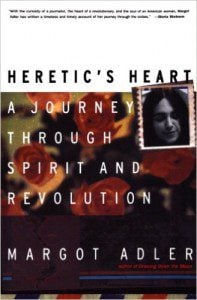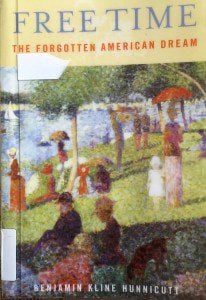Note: This post is part of our Lenten series on Joyce Rockwood Hudson’s book Natural Spirituality: Recovering the Wisdom Tradition in Christianity. Links to the previous installments in this series on “Jungian Spirituality” will be included at the end of each post.
Recovering the Wisdom Tradition in Christianity. Links to the previous installments in this series on “Jungian Spirituality” will be included at the end of each post.
5 One night they both dreamed—the cupbearer and the baker of the king of Egypt, who were confined in the prison—each his own dream, and each dream with its own meaning. 6 When Joseph came to them in the morning, he saw that they were troubled. 7 So he asked Pharaoh’s officers, who were with him in custody in his master’s house, “Why are your faces downcast today?” 8 They said to him, “We have had dreams, and there is no one to interpret them.” And Joseph said to them, “Do not interpretations belong to God? Please tell them to me.” 9 So the chief cupbearer told his dream to Joseph, and said to him, “In my dream there was a vine before me, 10 and on the vine there were three branches. As soon as it budded, its blossoms came out and the clusters ripened into grapes. 11 Pharaoh’s cup was in my hand; and I took the grapes and pressed them into Pharaoh’s cup, and placed the cup in Pharaoh’s hand.” 12 Then Joseph said to him, “This is its interpretation: the three branches are three days; 13 within three days Pharaoh will lift up your head and restore you to your office; and you shall place Pharaoh’s cup in his hand, just as you used to do when you were his cupbearer…. 16 When the chief baker saw that the interpretation was favorable, he said to Joseph, “I also had a dream: there were three cake baskets on my head, 17 and in the uppermost basket there were all sorts of baked food for Pharaoh, but the birds were eating it out of the basket on my head.” 18 And Joseph answered, “This is its interpretation: the three baskets are three days; 19 within three days Pharaoh will lift up your head—from you!—and hang you on a pole; and the birds will eat the flesh from you.” 20 On the third day, which was Pharaoh’s birthday, he made a feast for all his servants, and lifted up the head of the chief cupbearer and the head of the chief baker among his servants. 21 He restored the chief cupbearer to his cupbearing, and he placed the cup in Pharaoh’s hand; 22 but the chief baker he hanged, just as Joseph had interpreted to them. 23 Yet the chief cupbearer did not remember Joseph, but forgot him.
Genesis 40
I am in Asheville, North Carolina on a main street, and I want to find my way to the grounds of a camp in the nearby town of Black Mountain where I used to spend the summers when I was younger. I quickly find the camp.
I return to the main street in Asheville, but when I try to find the camp again, I can’t. I go all the way up the street, which ends at a famous bookstore.
I then go all the way to the other end of the street. I am growing increasingly annoyed and anxious. I am worried that I might not find what I am looking for. And I eventually become aware that I am not just looking for the right path merely for myself; I want to lead others to the camp as well. It feels like I need to shift to a parallel street. At the other end of this new street, I find the historic Grove Park Inn.
Suddenly, I am in the passenger-side seat of a car, and someone else is driving us past the Grove Park Inn.
Then suddenly I’m standing in a field, and a middle-aged woman is giving me advice. She says, “Remember to fill-up your car whenever you get close to a quarter tank.” She also said something about paying attention to when it is “God’s time” to fill-up.
Then suddenly I am walking out a screen door into my neighbor’s backyard. I want to get a brightly colored totem pole that the former resident had left there.
And then I woke-up. Some of you may have guessed that what I was describing sounded more like the world of dreams than the world of waking life. As the title of an excellent book on dreams says, our experience when asleep is often a place Where People Fly and Water Runs Uphill. The subtitle is “Using Dreams to Tap the Wisdom of the Unconscious.”
This Lent, we’ve been exploring Jungian spirituality, and part of what the writings of Carl Jung invite us to do is pay attention to synchronicities (“meaningful coincidences”) during the day and to dreams at night. The claim, which you are invited to test in the crucible of your own experience, is that the more attentive you are to synchronicities and dreams, the more you will be able to integrate your personal unconscious into your waking life and the more you will be in touch with the wisdom of the Collective Unconscious.
This week I would like to focus on dream work, and next week we’ll turn our attention to synchronicities. I first became interested in working with dreams a few years ago. I was attending a conference, and my roommate was in the final stages of completing his dissertation on the topic of group dream interpretation in churches. He shared with me some of the basic premises of Jungian dreamwork, and I began to do some research of my own, culminating in facilitating a dreamwork group for a few months at the church in Louisiana, where I was formerly on staff. I would like to share with you some of the beginning practices for those who may be curious to experiment with listening for God through their dreams.
Scientific sleep studies show that almost everyone dreams, but not everyone remembers their dreams. The most successful trick in starting to remember your dream is to become intentional about doing dream work. Put a pen and pad of paper beside your bed, and before going to sleep each night explicitly state your intention — either silently or aloud — that you want to remember your dream. Then, write your dream down as soon as you wake up because the details of dreams usually fade quickly.
Another important tip is to be sure to record your dream in the first-person singular. You may have noticed that in the dream I shared, I kept using “I-statements”: “I am in Asheville,” “I want to find my way,” “I return to the main street.” Writing in the first-person helps you relive the immediacy of the dream experience as if it were happening again, making it more likely that you will recall more of the details and emotions of the dream.
Notice also that I used the word “suddenly” a lot. Dreams frequently have this sort of disjunctive quality where that are abrupt transitions to a different setting. Even if you only remember an emotion, a color, or another small detail about a dream, you can still do significant work with even that tiny aspect. Honoring and paying attention to that small detail may well be enough to start you on the path of increasingly remembering your dreams over time.
Next, there is a simple four-step formula to begin working with your dreams that uses the abbreviation TTAQ: Title, Theme, Affect, Question. When you have time either immediately or later in the day, review your initial notes about your dream, then ask yourself, “What title does this dream want itself to have?” Allow your mind to free associate, and try not to censor yourself. But don’t spend too much time on this first step. Sometimes it helps to use the first thing that pops into your mind as a title.
For theme, reflect on the ”major motifs or issues which surfaced in the dream.” Then note the affect, the “dominant feeling or emotional energy experienced.” Finally, instead of asking yourself “What does this dream mean?” try asking yourself, “What central question is my dream inviting me to reflect or focus upon?”
To use the dream I shared earlier from a few years ago as an example, I titled this dream, “Wandering the Streets.” One major theme was “searching.” The dominant affect was “building anxiety,” especially in the first part of the dream. As I reflected on the question that emerged that perhaps my unconscious was trying to help me become consciously aware of was, “What am I searching for so desperately for myself and others?” As I pondered that question, one response that occurred to me as, “Why search so anxiously? Wherever you go, there you are.” The invitation I heard was, “Be here now.” This example is just a small taste of the insight and wisdom that can be gained by from paying attention to how our personal unconscious and the Collective Unconscious. Indeed, in the third-century one rabbi went so far as to say that, “A dream uninterpreted is like a letter (from God) unopened.”
If you do begin sharing your dreams with trusted friends in your life — which I encourage you to do — perhaps the most helpful practice I learned from facilitating a church dreamwork group was the ground rule to never tell someone what their dream means. Instead, you are on much safer ground to always begin any statement about another person’s dream with the caveat, “If this were my dream….” Beginning with this phrase helps you to own that your interpretation of another person’s dream inevitably involves significant projection of your biases onto another person’s experience. However, because dreams often emerge out of the Collective Unconscious, they tend to speak in the language of symbols and archetypes that have universal relevance to the human condition. So working with other people’s dreams, “As if it were your own dream,” can be almost as significant as working with a dream that was actually your own. Working with the dreams of friends or family members (“as if this were my dream”) can also be a way of initiating a process that will likely lead to better dream recall over time.
All this talk about God speaking to us through our dreams can seem strange. But more than a century ago Sigmund Freud — Carl Jung’s mentor — recognized that dreams are not random, but are rather the “royal road to the unconscious” (25). And talking about dreams in church should seem more natural to us than it likely does given that the Bible is replete with God speaking through dreams and dreamers.
To name on a few examples in addition to our scripture reading for this morning about Joseph’s dreams, there is the famous dream of Jacob’s ladder in Genesis 28. In Numbers 12:6 God promises that, “When there are prophets among you, I the Lord make myself known to them in visions; I speak to them in dreams.” In the second chapter of Joel, a verse reiterated at Pentecost, we hear another promise from God that, “Your sons and your daughters shall prophesy, your old men shall dream dreams, and your young men shall see visions.” The Book of Daniel also includes dream significant interpretation. Turning briefly to the New Testament, there are many pivotal dreams surrounding Jesus’ birth in Matthew chapter 2.
~~~~
In the contemplative silence to follow, I invite to you be open to what this talk of dreams and dreamers may have stirred up within you. Do any memories of dreams emerge from your unconscious? In the coming weeks, I invite you to be open and attentive to unexpected patterns in your life, meaningful coincidences, and your dreams. You may be surprised what you notice. For now, I invite you to be still and listen….
Appendix: Primer on Dream Interpretation
As a starting point, the following are some common dream symbols and their standard archetypal interpretations, abbreviated from Hudson’s book (49, 68ff). She goes into much more detail:
- Water: the unconscious (other common archetypes for the unconscious are “underground realms, wild places like forests and jungles, and great beasts like whales and dragons”).
- Light – new level of consciousness
- Earth – material world
- Air and Sky – realm of spirit
- Vehicles – how you get around in the world (pay attention, for example, to who is driving your car. If it’s not you, then who may be directing your life that you need to perhaps pay attention to as a way of getting back in the driver’s seat?)
- Animals – instinct
- Child – something new or growing
- Circle – the Self as it arises spontaneously in nature (sun; moon; many fruits, nuts, seeds, and flowers; eyes of animals).
- Toilets and bathrooms – privacy
- Defecation – eliminating residue of life gone by, need to let go of something now obsolete in your life.
Jeremy Taylor also has a number of free articles on dreams and dreamwork on his website: http://www.jeremytaylor.com/pages/dreamwork.html#Anchor-Article-47082. Also, see his book The Living Labyrinth: Exploring Universal Themes in Myths, Dreams, and the Symbolism of Waking Life.
For Further Study on Dreams
- Jeremy Taylor, The Wisdom of Your Dreams: Using Dreams to Tap into Your Unconscious and Transform Your Life: “A renowned expert on the subject of dreams, Taylor has studied dreams and has worked with thousands of people both individually and in dream groups for more than forty years. His discoveries show us how dreams can be the keys to gaining insight into our past and our conflicts, as well as excursions into the fantastic realm of creative inspiration. An expanded and updated edition of his classic guide to understanding your dreams — Where People Fly and Water Runs Uphill — The Wisdom of Your Dreams provides readers with specific, hands-on techniques to help them remember and interpret their dreams, establish a dream group, and learn the universal symbolism of dreaming. Full of case histories and featuring a revised introduction by the author and a new chapter about dreams as clues to the evolution of consciousness, this is a life-changing and potentially world-changing work.”
- Louis Savary, et al, Dreams and Spiritual Growth: A Judeo-Christian Way of Dreamwork: “A comprehensive dreamwork methodology, including 37 dreamwork techniques, that integrates psychological, spiritual, historical and theological perspectives.”
- “The Myth of the Eight-hour Sleep”: In many historic accounts, people used the time between first and second sleep to meditate on their dreams. Available at http://www.bbc.co.uk/news/magazine-16964783.
Previous Sermons in this Series on “Jungian Spirituality for Lent”
- “Confronting the Unconscious: from Supernatural to Natural Spirituality” (Lent 1). Available at http://www.patheos.com/blogs/carlgregg/2012/03/confronting-the-unconscious-from-supernatural-to-natural-spirituality/. An excerpt: “We have to be extraordinarily careful about attributing causation to God and meaning to events. In particular, I am by no means promoting a variation of the harmful canard that, “everything happens for a reason.” But, at least for Joyce Rockwood Hudson, calling these two events “mere coincidences” did not adequately explain the powerful impressiveness of her personal experience. She increasingly had eyes to see and ears to hear “very personal and specific meaning” in events that would have previously seemed coincidental, random, and generic. In Jungian terms, Joyce was experiencing a “confrontation with the unconscious.” And when she examined these resonances between the inner and outer world, she found guidance, insight, and encouragement on her journey toward spiritual growth and greater wholeness.”
- WWJD? (“What Would Jung Do?”): Jungian Spirituality for Lent (Lent 2). Available at http://www.patheos.com/blogs/carlgregg/2012/03/wwjd-%E2%80%9Cwhat-would-jung-do%E2%80%9D-jungian-spirituality-for-lent/. An excerpt: “This scenario does not require or allow for any supernatural control of the weather. Rather, you are invited to consider if we sometimes unconsciously have access to additional level of reality that our conscious minds cannot typically perceive. The more you open yourself to noticing and learning from synchronicities during the day and your dreams at night, the more you may find yourself with breakthrough insights into how to grow toward greater spiritual maturity and personal wholeness.”
Resources on Jungian Spirituality
- Sara Corbett, “Carl Jung and the Holy Grail of the Unconscious,” The New York Times (September 16, 2009). Available at https://www.nytimes.com/2009/09/20/magazine/20jung-t.html?pagewanted=all.
- Carl Jung, Memories, Dreams, Reflections: Jung’s autobiography is arguably the best, most accessible entry point into his writings, which can be difficult to read. The next best step is probably The Portable Jung (The Viking Portable Library), edited by Joseph Campbell. This sampling of Jung will help you discern where you may want to begin to dive into his Collected Works.
- Seedwork.org: a website filled with practical tools for listening to God’s Wisdom in many forms, including dream work, deep prayer, and meditation. Originally created under the auspices of the Episcopal Diocese of Arkansas. A primary site for gaining information about the expanding field of inner journey.
Notes
1 Joyce Rockwood Hudson, the author of our focal book, is the founder and director of the Natural Spirituality Program at Emmanuel Episcopal Church in Athens, Georgia. According to one reviewer, she takes the insights of Carl Jung’s (1875–1961) writings “out of the professional world of the analyst’s office into the everyday world of the laity in the local church. The book offers serious Christians in every community an opportunity to embark on the spiritual path of individuation. With clarity and simplicity Joyce Hudson puts into her reader’s hands the tools for inner work that Jung offered to Christianity. She then goes beyond Jung to present original models of masculine and feminine wholeness.”
2 TTAQ: Title, Theme, Affect, Question — This process, as well as many other practical techniques, are described in Dreams and Spiritual Growth: A Judeo-Christian Way of Dreamwork by Louis M. Savary, et al.
3 “Wherever You Go, There You Are” is the title of an excellent book by Jon Kabat-Zinn. “Be Here Now” is a phrase made famous by Ram Dass. For more, see my post on “Ram Dass and ‘Jesus as Guru,’” available at http://www.patheos.com/blogs/carlgregg/2010/11/book-review-ram-dass-and-jesus-as-guru/.
4 “A dream uninterpreted is like a letter (from God) unopened.” — Rabbi Hisda, quoted in Robert Haden, Unopened Letters From God: Using Biblical Dreams To Unlock Nightly Dreams, 1. Of course, God — and the unconscious — communicates with us in all manner of ways. So, leaving our ‘dream mail’ from God unopened does not preclude experiencing God through the pages of the scripture, a walk in nature, through another person, through art or music, or through many other means. For more, see Creating a Life with God: The Call of Ancient Prayer Practices by Daniel Wolpert.
5 Carl Jung wrote that, “The dream is often occupied with apparently very silly details, thus producing an impression of absurdity, or else it is on the surface so unintelligible as to leave us thoroughly bewildered. Hence we always have to overcome a certain resistance before we can seriously set about disentangling the intricate web through patient work. But when at last we penetrate to its real meaning, we find ourselves deep in the dreamer’s secrets and discover with astonishment that an apparently quite senseless dream is in the highest degree significant, and that in reality it speaks only of important and serious matters. This discovery compels rather more respect for the so-called superstition that dreams have a meaning, to which the rationalistic temper of our age has hitherto given short shrift.” — “On the Psychology of the Unconscious” (1953). In Two Essays on Analytical Psychology (Collected Works of C.G. Jung, Vol. 7), 24.
6 Matthew 2 — for more, see my sermon “Listening to God in Your Dreams” (May 15, 2011). An excerpt: “Many Christians — even those who claim to take the Bible with upmost seriousness — fail to take their dreams seriously even though the Bible is replete with significant dream interpretation from Jacob’s ladder to Joseph’s multi-colored ‘dreamcoat,’ from Pharaoh to Nebuchadnezzar, and from Pilate’s wife to Peter’s rooftop vision. From scripture to Carl Jung, what tools do we have as twenty-first century Christians for listening to God through our dreams?” Available at http://broadviewchurch.net/2011/05/sermon-listening-to-god-in-your-dreams/.
The Rev. Carl Gregg is the pastor of Broadview Church in Chesapeake Beach, Maryland. Follow him on Facebook (facebook.com/carlgregg) and Twitter (@carlgregg).












